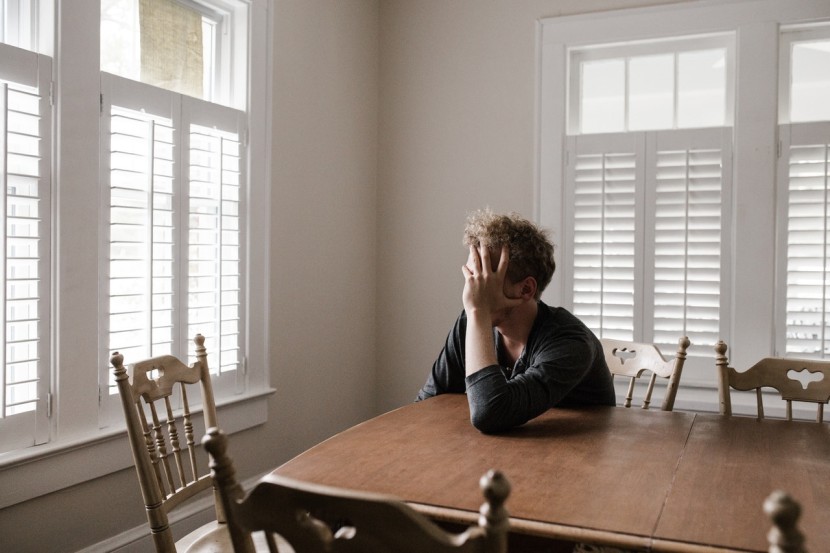
Christmas is a time of giving, gathering, and happiness. However, not everyone feels the same. A recent YouGov study revealed that 26% of individuals asked reported that Christmas worsened their mental health, SCMP via MSN reported.
So, during a time when the majority of people are eating, drinking, and celebrating, what is prompting so much concern?
How to Protect Mental Health?
We are supposed to be enthusiastic about Christmas, to socialize more, and to have family meals, and the task of finding the perfect gifts is arduous. Dr. Elena Touroni, consulting psychologist and co-founder of The Chelsea Psychology Clinic, offers the following five ideas to help you maintain your mental health over the holiday season.
1. Ease The Pressure
Dr. Touroni explains, "Christmas is frequently filled with anticipation, which might be accompanied with extra pressure for everything to be perfect." When things do not go as planned, we may feel as though we have failed in some manner.
To alleviate this strain, she urges you to be nice to yourself and to let go of any preconceived notions about how Christmas Day should go.
Determining early in the holiday season whether or not you are actually joyful and calm enough to host Christmas Day.
Inviting relatives and friends to assist with and divide festive duties, such as preparing aspects of the Christmas supper or decorating the table.
In addition to lowering financial stress, choosing a comfortable budget will allow you focus on what's most important to you during Christmas and worry less about creating a picture-perfect Christmas scene.
Remember that Christmas Day itself seldom works well, and that mistakes, such as a burned supper, may frequently lead to laughter and shared memories.
2. Engage in Self-Care
Per Patient.Info, self-care involves engaging in activities that provide you pleasure or relaxation. Self-care has shown advantages for stress management, energy levels, and even sickness prevention when it comes to holiday mental health.
According to Dr. Touroni, you should create time for activities that bolster your mental health and nourish you. December may be quite hectic, so it is essential to feel that you can set aside time for self-care, even if it means declining an invitation.
Eating well and staying hydrated - consuming unhealthy meals and even moderate dehydration can have a negative effect on your mood and energy levels. 3. Despite its importance throughout the year, the prevalence of alcohol and bad foods during the holiday season makes this a December priority.
Keeping up with exercise - hectic holiday party schedules and hungover days sometimes break exercise habits, yet only 30 minutes of moderate activity every day can improve your mood2.
Engaging in soothing pastimes, such as taking pleasant walks, reading, doing do-it-yourself projects, or taking a luxurious bath.
Focusing on positivity - recognize when negative thoughts are triggered by the holiday season and attempt to counter them with a good idea.
3. Don't Force Yourself
Christmas may be a trying time, as we may feel pressure and expectations to do particular activities or visit particular people. If you're feeling depressed, weary, stressed, or nervous, Dr. Touroni advises you to avoid doing anything that can exacerbate these sensations.
Timing your social activities; for instance, if you have a difficult relationship with specific family members, be realistic about how much time is healthy to spend with them. Possible alternative to an overnight stay is a noon visit.
Learning to say no, such as declining party invites in order to catch up on sleep and relax.
Follow suggestions on how to consume alcohol responsibly over the holiday season, especially at office parties.
4. Express Yourself by Talking to Someone
If you are battling with your mental health over the holiday season, you do not need to do it alone.
Conversations with friends and family may alleviate a great deal of the weight and stress we experience over the holiday season and make you feel supported by a network. Consult your primary care physician or a private therapist if you require further skills to return to a more positive mental state.
Read Also : Scientists Warn Common Food Dye in Famous Snacks Linked to Bowel Inflammation, Study Says
Start Your Support Plan
Many mental health professionals, including psychologists, psychiatrists, and counselors, also take time off between Christmas and New Year's.
Consequently, you may have a longer-than-usual gap between sessions during a potentially challenging time of year.
Before the holidays, it is also crucial to have a list of self-care practices and a list of people to call if you sense a decline in your mental health. And if you need more assistance or someone to talk to, there are programs available 24/7 during the Christmas season, according to ABC.net.
Related Article: 'Tripledemic' in US Causes Medicine Shortage; Here's How To Take Care of Your Family During Fever-Filled Holidays
@YouTube








